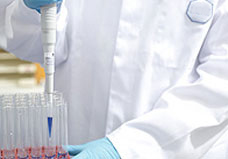| |
 |
|
|
|
|
|
|
HIV |
|
|
The Basics
HIV is a virus that infects and destroys CD4 cells. CD4 cells are
part of the body’s immune system. The immune system protects the
body from invaders. When the immune system loses too many CD4
cells, it becomes weak and is unable to fight off germs. At this
point, you are at risk of getting AIDS-related opportunistic
infections (OIs) that can cause serious illness or death.
HIV Treatments
Scientists have developed drugs that block HIV from reproducing
(multiplying). These drugs are grouped into classes. Each class of
drugs works to stop HIV at a certain point in its life cycle. So
far there are five classes of drugs:
-
Entry inhibitors (includes
fusion inhibitors and CCR5 antagonists)
-
Integrase inhibitors
-
Nucleoside/nucleotide reverse
transcriptase inhibitors (“nukes” or NRTIs)
-
Non-nucleoside reverse
transcriptase inhibitors (“non-nukes” or NNRTIs)
-
Protease inhibitors (PIs)
HIV drugs are always used in
combination to attack the virus at different points in its life
cycle. This usually means using drugs from at least two classes.
Combining HIV drugs is the best way to reduce the amount of HIV in
your blood ( viral load).
Baseline Blood Tests
Before you start HIV treatment, your health care provider should
have you take a number of blood tests. These are your baseline
tests. Future test results will be compared to your baseline
results to check how you are doing and how your treatment is
working.
1.CD4 cell (T-cell) count: The CD4 count checks the
strength of your immune system. After you start HIV treatment, you
should see your CD4 count go up. Your CD4 count should be checked
every 3-4 months, if possible.
2.Viral load test: The viral load test measures the amount
of HIV in your blood. After you start HIV treatment, you should
see your viral load go down. Your viral load should be checked
about a month after you start or change HIV drugs. After that, it
should be checked every 3-4 months.
3.Resistance test: The resistance test helps determine
which drugs are likely to work for you. Experts recommend that
everyone should get a resistance test before starting or changing
HIV treatments, even if you do not plan to start HIV treatment for
a while.
4.Other tests to check your overall health: These include
complete blood count (CBC), chemistry screen, lipid profile, and
glucose. Your health care provider should talk with you about how
often these tests need to be done.
|
|
|
|
HIV - treatment of HIV, HIV types, Disease
medicines, HIV symptoms, HIV and Disease symptoms, HIV symptoms Disease and
diagnosis, Symptoms and Solutions, Signs and Symptoms, type of HIV, cause
common, common HIV, HIV List, causes list, Infectious HIV, Causes, Diseases
, Types, Prevention, Treatment and Facts, HIV information, HIV: Definition,
HIV names, medical HIV, medical HIV and disorders, cell HIV, HIV Worldwide,
HIV Research, HIV Control, HIV Center, Digestive HIV Week, Information about
HIV, causes of different HIV, HIV Articles, HIV and conditions, Health and
HIV, HIV Patients, HIV and Sciences, causes of alzheimer's HIV, HIV causes,
alternative medicine heart HIV, body ailments, HIV medicines, medical
antiques, type of blood HIV |
|
|





